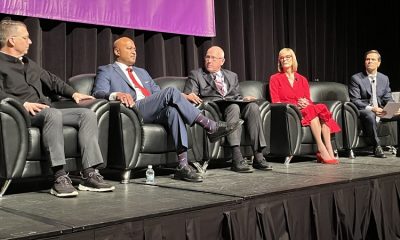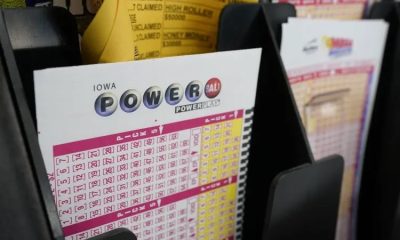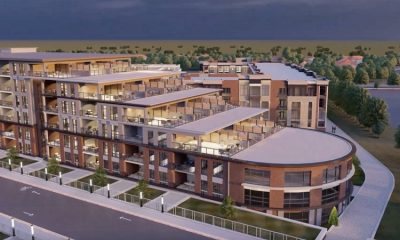Indiana
Landowners are leery about solar projects due to land use disputes

White County, Indiana – A longtime farmer said that he doesn’t think he was given an honest explanation by a solar business when they leased his property for a solar farm.
For the Texas-based company EDP Renewables to construct a solar farm, Doug McGill leased roughly 400 acres to the latter in 2019. He stated that as part of the lease discussions, the company committed to clearing bush in specific sections of the site and not remove any additional topsoil or drainage infrastructure than strictly necessary. He claimed that the business sent the lease to Texas to be notarized and signed as soon as he accepted it. These clauses had been deleted or changed when he got a notarized copy of the lease.
According to McGill, construction companies crushed 60 acres of dirt and largely ruined the drainage system on the leased area, citing orders from EDP Renewables. McGill claimed that his heirs most likely won’t be allowed to utilize the land as farming, even though the lease has clauses requiring the firm to rehabilitate the area once the solar farm is removed.
“I tried to get the bulldozing stopped and could not do it,” McGill said. “They said they’re going to do it whether I liked it or not, and so they did.”
According to McGill, he didn’t save any documents of the terms that he and the business decided upon before the final lease.
In addition to the solar farm on property leased from McGill and a neighbor, EDP Renewables owns five wind farms in White County. Senior project development manager Andrew Magner, who is a native of the area, stated that before a lease is signed, corporate representatives use lease option agreements to discuss terms with landowners. Although he is unable to speak on specific instances, Magner stated that the company never modifies a lease or a lease option arrangement without first consulting the landowner and obtaining their approval in writing. According to him, notarization always takes place in person in the county where the project is located, even though leases can be signed elsewhere.
According to Magner, contractors manage any on-site construction or demolition, while local land agents typically negotiate with the corporation; however, both the contractors and the agents are always under the company’s supervision.
“I try to treat the development process with a lot of thought and I believe we are a very good developer,” Magner said. “We take the time to talk with landowners, meet with individuals around the county, go to county meetings. We’re out there, and we’re open for public comment if there are concerns.”
Magner stated that before starting to construct a solar farm, EDP Renewables investigates and models drainage problems. According to him, the landowner’s input is always incorporated by the corporation into the final blueprints. McGill claimed that the business disregarded his alerts regarding soil leakage on his property. He claimed that as a result, he now loses crops valued between $30,000 and $40,000 due to inadequate drainage.
For the area that is really used for solar panels, the corporation pays McGill $800 per acre year. The land that is part of the lease but does not have solar panels is worth $200 per acre. McGill claimed he was able to make up the lost acreage by purchasing some new land with the money. He stated that getting the firm to address the drainage problems on the leased land is currently his top priority. Regarding the larger problem of solar farms, McGill said he and his neighbors had become opposed to the development of new ones in their neighborhood. Although he indicated he is not against solar farms, he thought they need to be constructed on less agriculturally suited terrain.
-

 Local News2 weeks ago
Local News2 weeks agoCouncil of Bloomington overrides mayor’s veto of resolution calling for a ceasefire in Gaza
-

 Local News2 weeks ago
Local News2 weeks agoAttorney General Rokita offers her opinion on the use of pronouns at work
-

 Local News2 weeks ago
Local News2 weeks agoThe positions of the Republican gubernatorial candidates regarding taxes
-

 Local News1 week ago
Local News1 week ago$50,000 Truck stop sells Powerball tickets that are about to expire
-

 Indiana1 week ago
Indiana1 week agoAnderson man sentenced to 65 years for wife murder
-

 Local News2 weeks ago
Local News2 weeks agoBehold the spectacle that is Good Gravy!
-

 Indiana2 weeks ago
Indiana2 weeks agoWoman from Aurora detained for assaulting a child
-

 Local News1 week ago
Local News1 week ago$75 million “luxury urban” townhomes and condos with rooftop terraces are set to begin construction






Leave a Reply